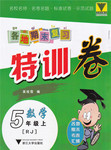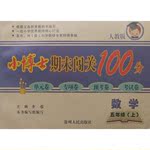题目内容
She ________ early since she came here.
- A.used to get up
- B.has used to get up
- C.has got used to getting up
- D.was used to getting up
C
导解:be used to doing习惯做某事;since一般与完成时连用.
导解:be used to doing习惯做某事;since一般与完成时连用.

练习册系列答案
 各地期末复习特训卷系列答案
各地期末复习特训卷系列答案 小博士期末闯关100分系列答案
小博士期末闯关100分系列答案
相关题目